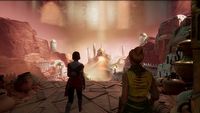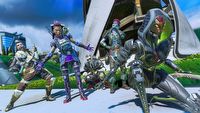Action RPG from the masters of slashers. Scalebound could have been one of Microsoft's great exclusives
There was a time when Microsoft struggled to make its consoles boast the most diverse catalog of exclusive titles possible. One of these was to be Scalebound, another game from the PlatinumGames studio known for the Bayonetta series.
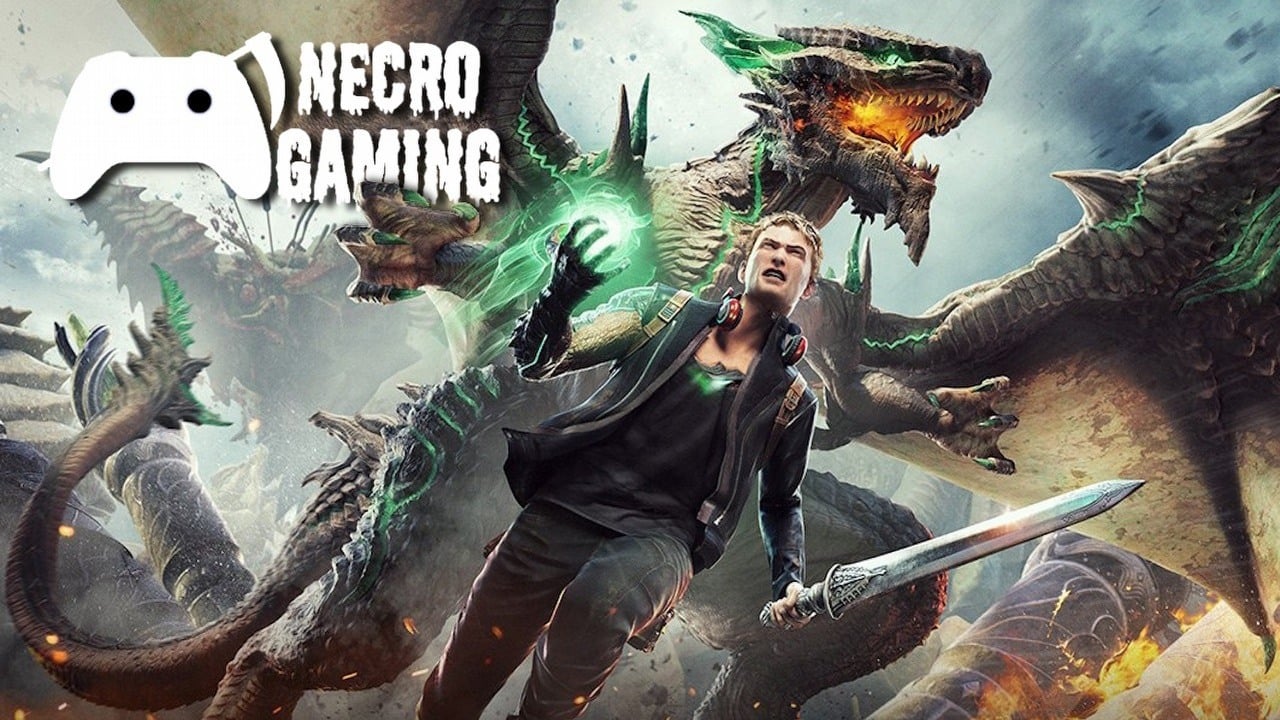
In 2014, the position of PlatinumGames studio in the video game industry was already firmly established. The team has earned the recognition of slasher fans and other spectacular action games through such projects as Bayonetta, Vanquish, or Metal Gear Rising: Revengeance. It's not surprising that while looking for developers of exclusive titles for Xbox One (and personal computers, since the Redmond giant already had a different definition of 'exclusive' compared to its competition), Microsoft decided to collaborate with Japanese developers. The result of this cooperation was supposed to be Scalebound, which looked like a mix of Devil May Cry and Monster Hunter.
Man, dragon - two brothers
Scalebound was announced during the E3 2014 trade show. Unlike most of PlatinumGames' previous titles, which were pure slashers, this time the Japanese team decided to develop an action RPG. However, the combat system was designed to be so spectacular that the entire project would stand proudly alongside the studio's earlier achievements. In the course of the game, we were meant to take on the role of a protagonist named Drew. He would end up in the fantastic land of Draconis, over which hung a danger that also threatened Earth.
The young warrior would have no choice but to fight. The character could count on the help of an unusual companion - the dragon Thuban, with whom he would form an unusual, interspecies alliance.
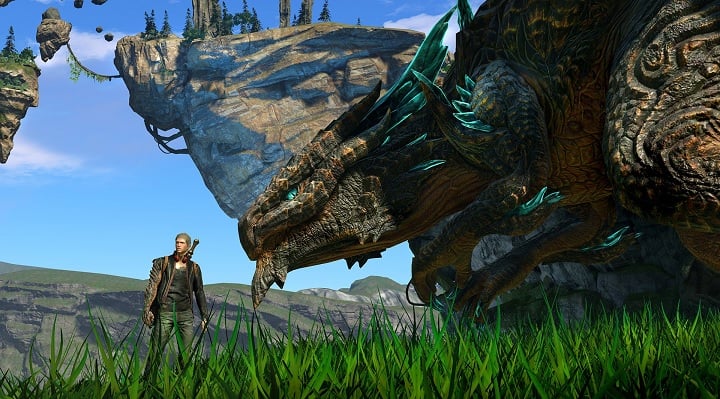
Mix of genres
Developing Scalebound, PlatinumGames aimed to place greater emphasis on the storyline and graphics, at the expense of a slightly less complex and more accessible combat system. However, the game would still be connected to the slasher genre, and by watching the action from behind Drew's back, we would spend most of the time fighting opponents. The clashes would be dynamic and spectacular, requiring from us agility, reflexes, and the ability to combine our attacks.
Besides the regular enemies that the protagonist would slaughter in a manner even Dante would admire, much more formidable bosses would block his path, requiring the discovery of their weaknesses to defeat them.
Drew would use both melee and ranged weapons, wielding swords and bows. The weapon was meant to gradually deteriorate, which would require changing gear. Moreover, the protagonist would have a dragon's arm, which he would use to discover the aforementioned weak points of enemies, launch special attacks, or heal Thuban. Furthermore, the main character was intended to have the power to change into a distinctive hybrid of a human and a dragon, possessing unique attacks in that form.
Interspecies alliance
Thuban wouldn't just be a background, but a fully-fledged, second protagonist of the story. Drew could give commands to his dragon companion, and although most of the time it would be controlled by AI, which would constantly adapt to the situation on the battlefield, over time we were supposed to gain the ability to take direct control over it (the perspective would then change to first-person). As the bond between Drew and Thuban would develop, the former would gain the ability to mount the beast and sow chaos on the battlefield, as well as traverse locations on its back.
As we progressed, we would collect a better gear and develop Drew. Thuban's strength would also grow, gaining new abilities related to combat. Over time, we would acquire new armors for him.
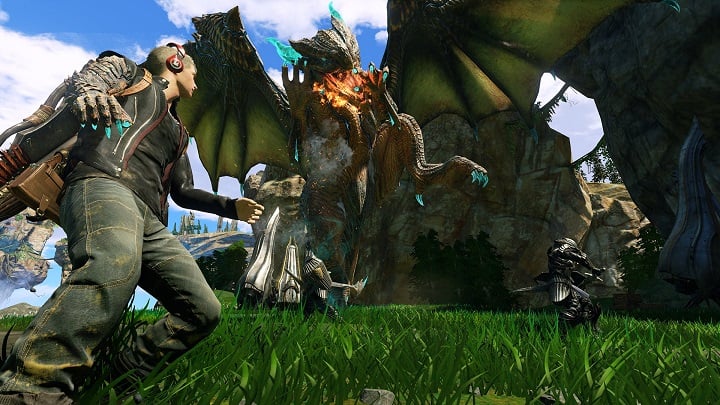
Not only for one
Scalebound was supposed to allow us not only to play alone, but also to play in co-op mode for up to four people. They intended to create different classes of dragons for the co-op, ranging from flying, agile reptiles to heavy creatures that walk on the ground.
Regarding the technology behind this project, Scalebound was supposed to run on Unreal Engine 4, which was then the flagship engine of Epic Games. The game looked really good in the materials presented by the devs; the attention was particularly drawn to the intricately designed dragon.
Dragons instead of dinosaurs
Before we discuss how Scalebound was removed from Microsoft's publishing schedule, we need to go back to the very beginning of PlatinumGames. The idea for such a title was born in the minds of the team members shortly after the establishment of the studio. However, the Japanese eventually decided on Bayonetta, and even though they revisited their initial concept after the long-haired witch's debut, it resulted merely in the creation of a prototype. This one, however, wasn't favored by any publishers, so Hideki Kamiya's team opted to create a different project - The Wonderful 101.
The studio didn't give up and when the work on the latter was coming to an end, it decided to return to the topic once again. Changes in the concept behind this project allowed to find a partner willing to finance it - the Microsoft company. While it hasn't been officially confirmed, it was likely at that time the choice was made to include dragons instead of... dinosaurs, which were initially intended to be here. Work on Scalebound finally began in 2013, and the E3 2014 trade show featured the official announcement of the project.
Inclined plane
At first, it seemed that everything was going according to the plan. The gamescom 2015 fair showcased the first gameplay from this title, and although in January 2016 it was announced that the release of Scalebound was delayed to 2017, there was still reason to be hopeful. Unfortunately, in January 2017 it was announced that the project had been suspended. Officials: after "long calculations" and for "business reasons."
Since then, there has been silence on the subject. As time went on, it became clear that one reason the work faced such a fate was PlatinumGames' lack of experience in developing online titles. Despite this, in 2020 the studio was ready to return to this project, hoping for a positive response from Microsoft. Unfortunately - in vain. In the end, certain elements (though it wasn't specified which ones) from Scalebound were implemented (with some modifications) in Bayonetta 3.
0

Author: Christian Pieniazek
Started working with Gamepressure.com in August 2016. Although the Game Encyclopedia has been his pride and joy from the beginning, he also writes for the Newsroom and the Editorial section. Gained professional experience through a now-defunct service, in which he worked for almost three years. Graduated in Cultural Studies at the AGH University of Krakow. Runs his own business, jogs, cycles, loves mountain hiking, is a fan of nu metal, is interested in space, and of course, enjoys playing games. Feels best in action games with an open world and RPGs, although won't turn down good racing or shooting games.
Latest News
- Free FPS on Half Life engine gets big update
- On February 3, gaming history could change forever. Red Dead Redemption 2 one step away from a major achievement
- This is not the RPG you expected. Crimson Desert abandons the key elements of the genre, going for original solutions
- Nintendo may unexpectedly beat Sony. State of Play is not to be the only game show awaiting players in February
- WoW's housing system will get some unexpected features any day now. Blizzard has detailed the development plan for its blockbuster after WoW: Midnight release

